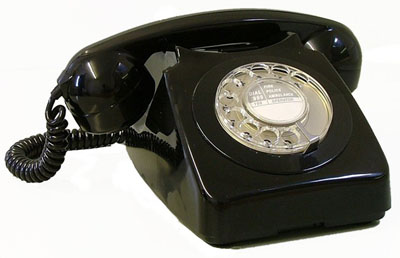UK Police Adopt New System to Extract Data from Phones
Police in London have adopted a new system that will allow them to quickly extract data from suspects' phones.
The Metropolitan Police in the United Kingdom has started the roll out of a new system that's capable of extracting data from mobile phones extremely quickly. The technology comes from Radio Tactics and is called ACESO. The data extraction solution will be used across 16 boroughs in the capital. ACESO allows police to quickly extra data from the mobile phones (even SIM locked phones) of suspects while they're in custody.
The Metropolitan Police will be using the ACESO Kiosk, which is a touchscreen desktop set-up. Deputy Assistant Commission of the Metropolitan Police Service, Stephen Kavanagh, explained that it will be used when a suspect is arrested and found with a phone that police suspect may have been used in crime. Kavanagh said traditional methods of data extraction involve sending the phone to the lab for analysis while the new system will give officers immediate access to the phone's data while the suspect is still in custody.
"Mobile phones and other devices are increasingly being used in all levels of criminal activity," Stephen Kavanagh, Deputy Assistant Commission of the Metropolitan Police Service," said in a statement. "Our ability to act on forensically-sound, time-critical information, from SMS to images contained on a device quickly gives us an advantage in combating crime, notably in terms of identifying people of interest quickly and progressing cases more efficiently," he later added.
As many as 300 Met personnel will be trained on the system.
Follow @JaneMcEntegart on Twitter.
Get Tom's Hardware's best news and in-depth reviews, straight to your inbox.

Jane McEntegart is a writer, editor, and marketing communications professional with 17 years of experience in the technology industry. She has written about a wide range of technology topics, including smartphones, tablets, and game consoles. Her articles have been published in Tom's Guide, Tom's Hardware, MobileSyrup, and Edge Up.
-
frombehind I guess warrent-less wiretaps are not enough.... funny thing is even though the police "are now enabled" with technology to catch criminals better, I dont feel any safer.Reply -
michalmierzwa Yeah, and the next thing on the market will be wireless HDD screening and data mining of suspected crakers or hackers with drive-by technology working with Google cars. LOLReply
I don't feel safer either. -
freggo How long until this technology find it's way to the hacking community or to criminals (if there is a difference) ?Reply -
razor512 Simple solution, take the phone apart, then cut some traces for 2 power connectors and 2 data connectors, then taking some thin wire, swap them, then do the same for your charge/sync cable.Reply
then if someone decided to copy your personal info, they will get pretty sparks from the phone instead
modern smartphones often skimp on diodes and other protection circuits in order to reduce the cost and size of the unit, this makes it easier to fry them if power goes in the wrong areas (the only areas with any real protection, are the charging circuits, but send power into one of the data pins and you will quickly begin to fry things in the phone (just fine ones with the least protected paths to any of the memory chips for faster results) -
frombehind It is also interesting that this "technology" comes after courts declared that it is unconstitutional to force a person to "unlock" locked parts of their phone so they can searched for criminal activity - 5th amendment.Reply -
razor512 Reply9368824 said:It is also interesting that this "technology" comes after courts declared that it is unconstitutional to force a person to "unlock" locked parts of their phone so they can searched for criminal activity - 5th amendment.
The UK is a little different, they often pioneer the tyranny a few years before it makes it's way to the US, (most of the freedoms lost in the past 30 years, were lost in the UK first, then made their way to the US 3-6 years later) -
lahawzel One wonders if said system leaves the phone intact.Reply
It'd be extremely embarassing if nothing incriminating was found and the suspect is acquitted, sans one smartphone from his pockets. -
willard Moral of the story: Encrypt your phone so people need a supercomputer to access its contents. It's not hard.Reply
